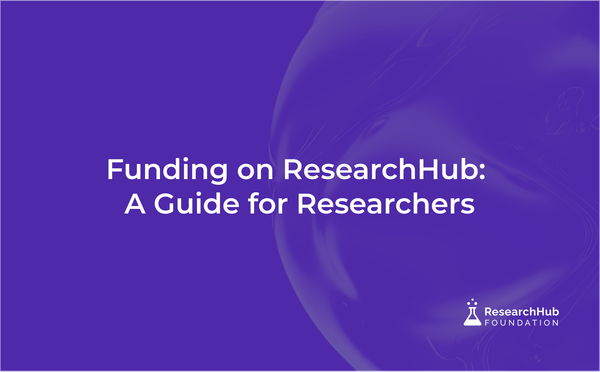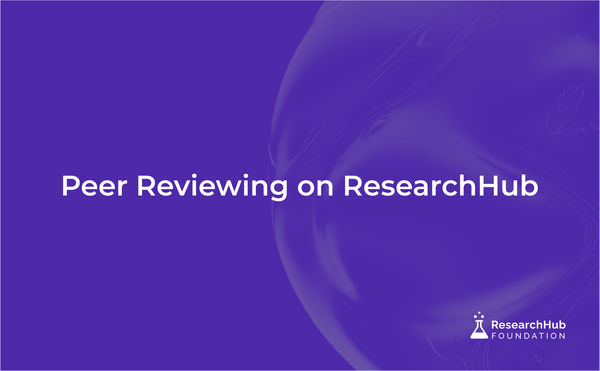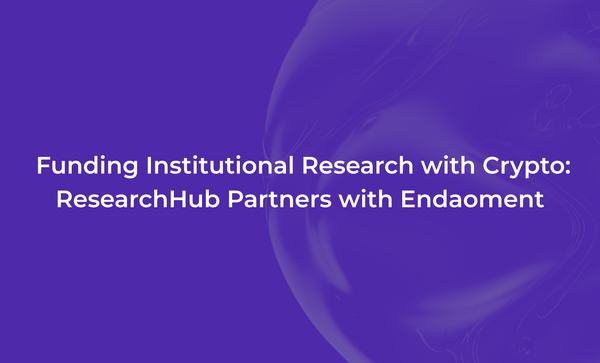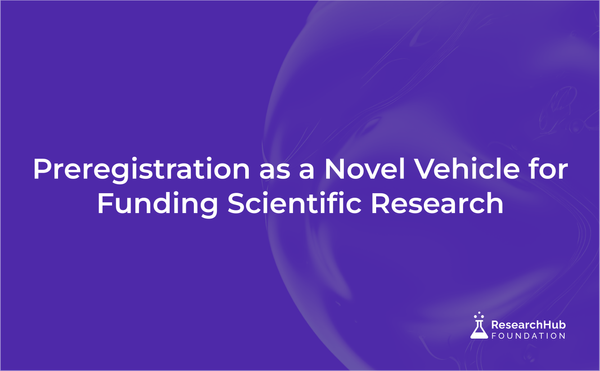Unlocking Scientific Progress: How ResearchHub is Accelerating Academic Publishing
Academic publishing is a cornerstone of scientific progress, yet the traditional journal system is riddled with inefficiencies that slow down the dissemination of knowledge and impose significant costs on researchers.
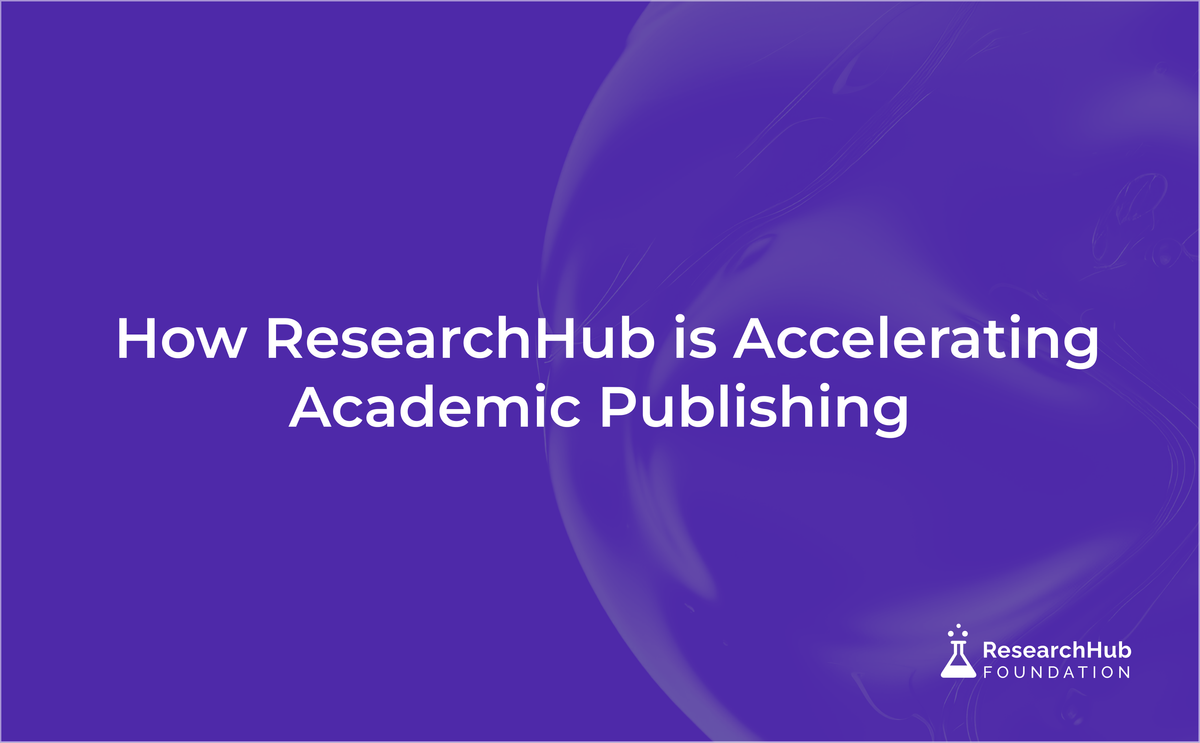
Academic publishing is a cornerstone of scientific progress, yet the traditional journal system is riddled with inefficiencies that slow down the dissemination of knowledge and impose significant costs on researchers. The traditional publishing system, with its high costs, long delays, and inadequate incentives, often fails to serve the broader needs of both researchers and society. These issues, combined with challenges like poor reproducibility and limited access to funding, call for a new approach to how research is conducted and shared. At ResearchHub, we are improving the research ecosystem through our platform with the aim of accelerating scientific progress.
Problems with Current Research Practices
Recent headlines reveal a deeper issue within academic publishing. Many major academic publishers are being sued for unlawfully appropriating billions of dollars while violating antitrust laws. The lawsuit, brought forward by neuroscientist Prof. Lucina Qazi Uddin of UCLA, alleges collusion to fix peer review costs at zero
Such practices highlight the inefficiencies of current research systems. Comprehensibility, overwhelming volume and cost/accessibility, create substantial barriers, hindering the rapid dissemination of valuable research. This stifles innovation, limits collaboration, and slows scientific progress that could otherwise benefit society in real time.
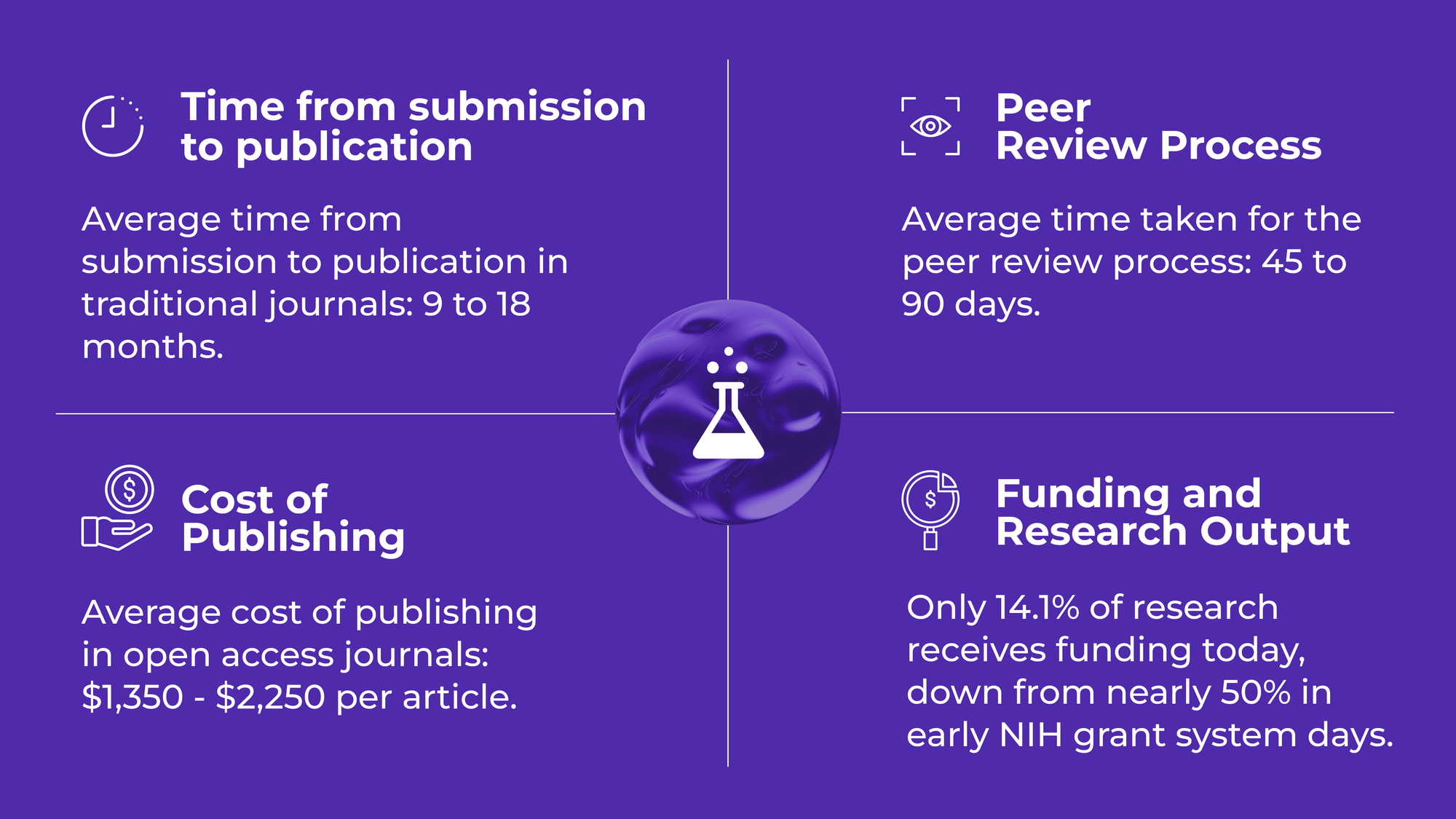
Cost/Accessibility: The high cost of accessing academic research is a significant barrier to the timely dissemination of knowledge. With average publication costs ranging from $1,350 to $2,250 for open-access journals, many researchers and institutions are priced out of sharing their work. Furthermore, the paywalls set up by journals limit access to published research, making it difficult for those without institutional support to stay informed. This lack of accessibility means that important discoveries can remain hidden behind paywalls, accessible only to those who can afford them, thereby slowing down the spread of knowledge to a wider audience.
Broken Incentives: The current academic publishing system is plagued by broken incentives that distort the scientific process. Publishers are driven to prioritize positive and flashy findings that attract attention, rather than research that may be less sensational but equally valuable. This creates publication bias, where negative or inconclusive results are often overlooked, contributing to a replication crisis in which many studies cannot be reliably reproduced. Meanwhile, authors are incentivized to game metrics like the citation count, focusing on boosting their academic standing rather than advancing knowledge. This misalignment of priorities stifles genuine scientific progress and skews research outcomes toward what is most publishable, not necessarily what is most important.
Trapped in the Ivory Tower: Traditional academia is often seen as an "ivory tower," where research is conducted in isolation from the broader society. This mentality can create a disconnect between the research community and the real-world issues that need to be addressed. The slow publication process reinforces this separation, as the time it takes to publish and disseminate research means that by the time it reaches the public, it may no longer be as relevant or impactful. Moreover, the exclusivity of academic publishing can discourage non-traditional researchers and citizen scientists from contributing, further slowing the pace of innovation.
Inefficiencies in Traditional Journals: Despite the high costs associated with traditional publishing, the system often fails to deliver optimal service. Long publication delays, an imperfect peer review process, and an overwhelming amount of publications continue to hinder the efficient dissemination of scientific knowledge.
Time from Submission to Publication: One of the most significant issues with traditional journals is the lengthy time it takes for research to move from submission to publication. On average, this process takes about 12 months, varying across scientific disciplines. This delay is not just an inconvenience—it can have real-world consequences, especially in fast-moving fields where the timely dissemination of findings is crucial. Moreover, submitted papers have an average acceptance rate of 32% after a lengthy peer-review process, meaning a substantial portion of research is either delayed further or never sees the light of day in these prestigious venues.
Peer Review Process: The peer review process, while essential for maintaining the quality of published research, is another source of delays. On average, this process takes 3 to 4 weeks. While this might not seem like a long time, it adds up when combined with the other stages of the publication process. For many researchers, this delay is frustrating, especially when combined with the uncertainty of whether their work will be accepted.
Volume and Comprehensibility: The sheer volume of research—over 2.9 million articles published annually—creates a challenge for researchers to sift through relevant studies, slowing down scientific progress. Many papers contribute little original content, further diluting the value of the work. Compounding this is the issue of comprehensibility, where complex jargon makes it difficult for non-experts, such as entrepreneurs and policymakers, to grasp the practical implications of discoveries. Simplifying research communication and making it more accessible can bridge this gap, fostering interdisciplinary collaboration and accelerating the application of scientific breakthroughs to real-world solutions.
How ResearchHub is Addressing Key Challenges in Publishing
ResearchHub addresses these inefficiencies by creating a platform that brings together researchers in a collaborative environment. ResearchHub seeks to improve the quality and speed of research, making it more accessible and aligned with real-world needs.
ResearchHub enhances the quality and speed of research by applying proven features from successful online platforms to the academic setting. It integrates upvote-based prioritization, collaborative tools, open access, an annotation system, an innovative funding model, and a unique bounty system that incentivizes researchers to tackle specific scientific challenges. These features, which have demonstrated success in other domains, are thoughtfully adapted to address inefficiencies in academic research, modernizing the process, and fostering greater collaboration and innovation.
While traditional journals provide curation and reputation, they also introduce costs and delays that hinder academic progress. ResearchHub replicates the positive aspects of journals, such as peer review and content curation, while improving on the negative aspects. By offering an alternative platform for publishing research, ResearchHub aims to make research more accessible, faster, and inexpensive to disseminate. Based on the most recent data, it takes about 9 days for a preprint to be fully peer reviewed on ResearchHub.
ResearchHub offers $150 peer review bounties funded with ResearchCoin (RSC), which can be easily converted to cash. RSC serves as the currency that facilitates the exchange of value on the platform, effectively enabling a decentralized research marketplace within ResearchHub. By setting both financial and reputational incentives, ResearchHub aims to replace the broken incentive structure of modern science. With RSC tokens, contributors are rewarded for their efforts. This incentive system ensures that peer reviews are not only completed quicker but also with higher quality, as reviewers are compensated for their time and expertise. Unlike traditional publishing models where reviewers work unpaid, ResearchHub values and rewards every contribution. Researchers can also freely publish and access studies, bypassing costly paywalls.
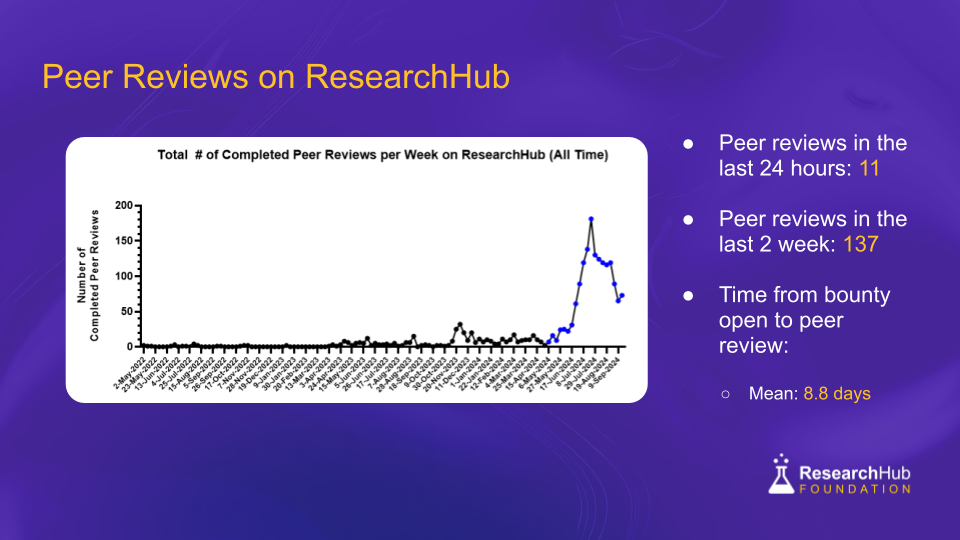
Conclusion
The inefficiencies in the current academic publishing system are significant barriers to the progress of science. By addressing issues like prioritization, reproducibility, funding, and accessibility, ResearchHub offers a promising solution to these challenges. As the platform grows, it has the potential to reshape the research landscape, making it more efficient, inclusive, and impactful. Researchers are encouraged to explore and support this innovative platform, helping to build a better future for academic research.


